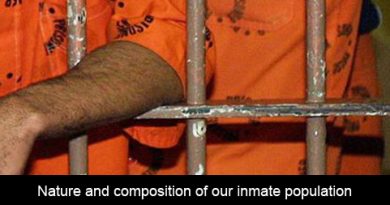Controlling the use of cannabis in the workplace now that it is ‘legal’
Since the legalisation of cannabis for private use in South Africa, many organisations have been struggling to come to grips with how to adjust their substance control policies. A zero-tolerance approach is no longer feasible, since cannabis can now legally be consumed outside of working hours. However, the Occupational Health and Safety (OHS) Act still states that no person under the influence of alcohol or drugs may be permitted in the workplace. In light of this, organisations need to adjust their policies as well as adopt the most appropriate testing solution to ensure the safety of their workforce at all times.
One of the challenges with the ‘legalisation of cannabis’ is a lack of understanding and education as to exactly what this law entails. There has been some confusion among workers that legalising marijuana means that they are now allowed to smoke it at work or before work. However, this is not the case. The situation is in fact similar to that of alcohol, in that it is not illegal to partake in the substance, however, it remains illegal to work under its influence as per the OHS Act which states that employers should not allow any person who is or who appears to be under the influence of intoxicating liquor or drugs to enter or remain at a workplace.
 This leads to the second challenge, how to enforce the OHS Act effectively with the legalisation of cannabis. Organisations are no longer able to enforce a zero-tolerance approach to the use of cannabis yet must now control its use or influence within the workplace. However, the metabolism of cannabis is a more complex matter than that of alcohol. It is also difficult to pinpoint exactly when the effects of cannabis dissipate, and at what point an individual can be considered to no longer be under its influence. Regular users will develop a certain tolerance to Tetrahydrocannabinol (THC), the active substance in cannabis, and the duration of its effects is also affected by the quantity smoked, the THC content of the drug and so on.
This leads to the second challenge, how to enforce the OHS Act effectively with the legalisation of cannabis. Organisations are no longer able to enforce a zero-tolerance approach to the use of cannabis yet must now control its use or influence within the workplace. However, the metabolism of cannabis is a more complex matter than that of alcohol. It is also difficult to pinpoint exactly when the effects of cannabis dissipate, and at what point an individual can be considered to no longer be under its influence. Regular users will develop a certain tolerance to Tetrahydrocannabinol (THC), the active substance in cannabis, and the duration of its effects is also affected by the quantity smoked, the THC content of the drug and so on.
In general, the effects of cannabis consumption last for an average of three to six hours. However, different testing methods will detect THC in the system for different periods of time. For example, a urine test can detect metabolised THC for several weeks or even months after the drug was used. However, the presence of the metabolised drug in the system does not indicate intoxication. Urine testing is therefore not a feasible option for detecting whether or not a user is under the influence of marijuana.
Saliva tests can however be utilised, as they produce a positive result if a test subject has utilised the drug within the past four to six hours depending on the cut off of the test and the quantity of cannabis that was used.. As this is the generally accepted window for the influence of THC, it will enable a better idea of whether or not an individual is still affected. This will then enable those testing positive on a saliva test to have further testing, such as a blood test, to determine the level of THC in the body and the likelihood of the individual still being under its intoxicating effects.
Unlike alcohol testing, it is not possible to enforce compulsory testing for the use of cannabis, since the saliva swab takes an average of five minutes to produce a result. It is therefore necessary to conduct random testing as well as testing on suspicion and testing involved parties in the event of an accident or incident. This is in line with previous drug testing policies that may already be in place. Organisations can also specify pre-employment testing as a requirement.
As a zero-tolerance approach cannot be followed with regards to cannabis, organisations need to be very specific with their policies. The first step for any organisation is to educate its workforce on what exactly the new law means, and then to set acceptable limits and state these explicitly in their policies. It is essential to specify that employees may not enter the workplace while under the influence of marijuana, and that they may not partake of its use in the workplace or during their work hours. Random saliva testing will enable this to be effectively enforced.
Know the Dangers of Dagga and Drugs away from home and when driving on the Roads! #DrugsOffTheStreets will make Roads Safer!! https://t.co/JEDmrc6ZZ4 @SAPoliceService #ArriveAlive #Dagga pic.twitter.com/m0drCKSE90
— Arrive Alive (@_ArriveAlive) January 27, 2019




